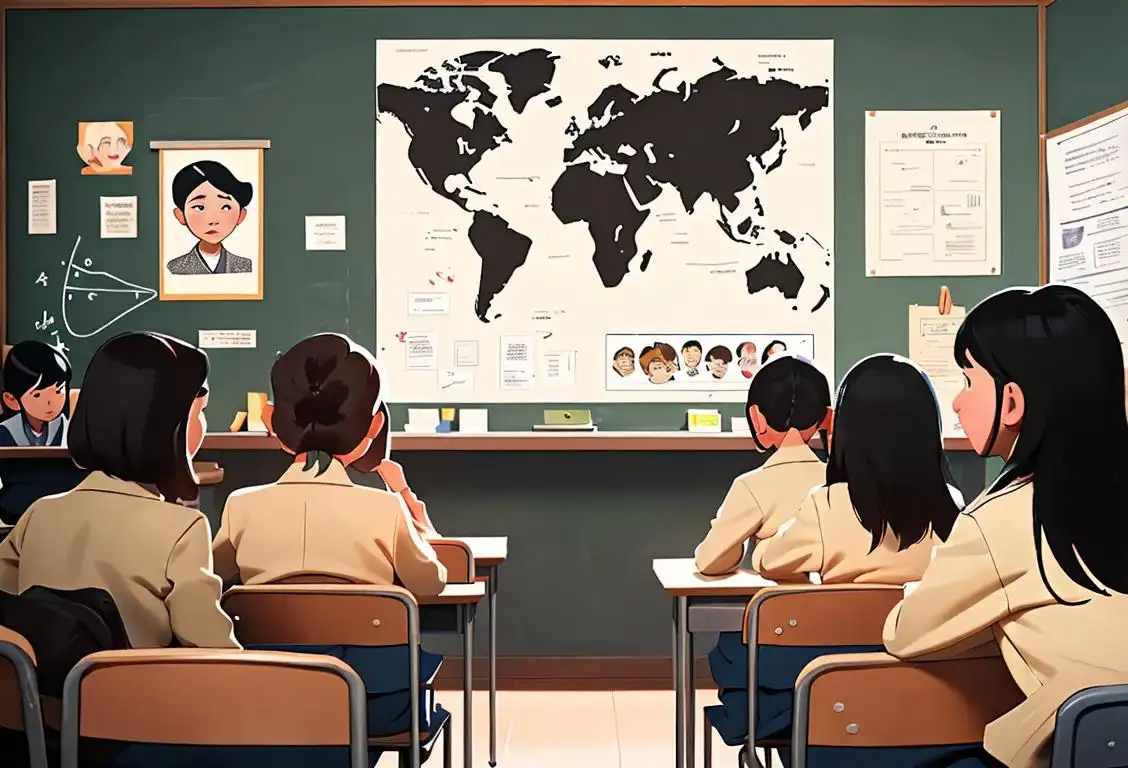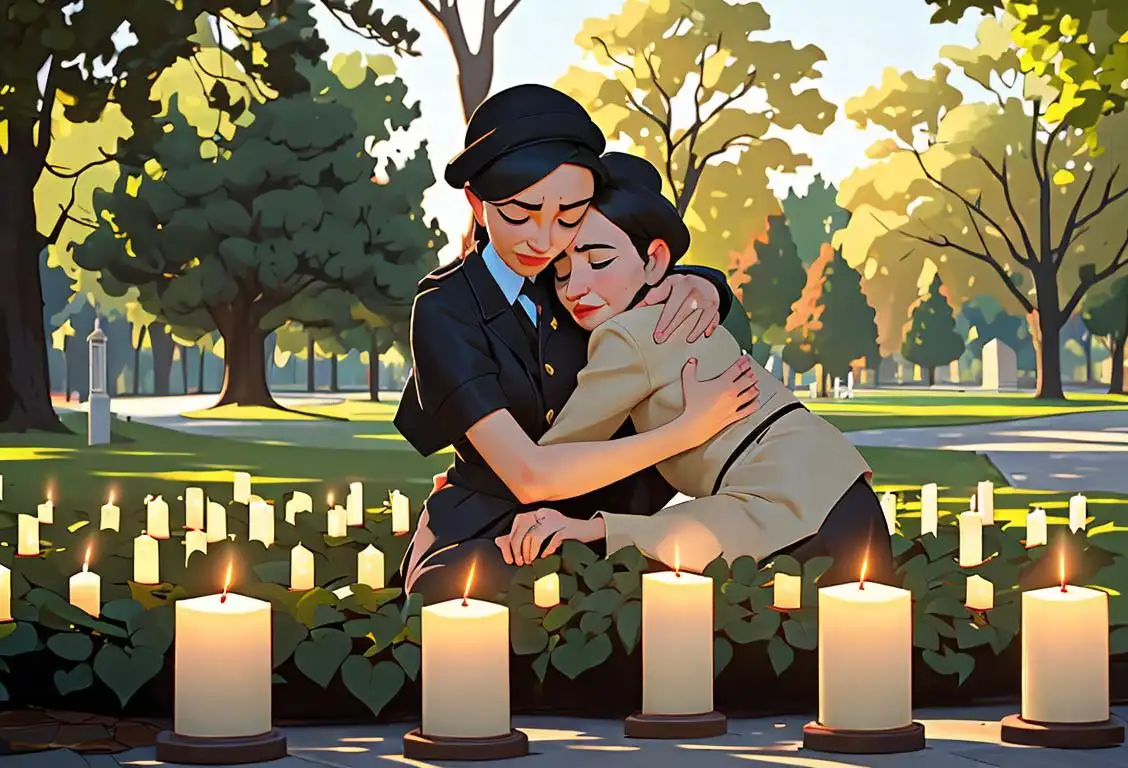National Internment Education Day

Hey there! Have you heard about National Internment Education Day? Well, get ready to learn something new and expand your knowledge on this special day!
When is Internment Education Day?
It's national internment education day on the 29th October.
The History Behind National Internment Education Day
National Internment Education Day is a day dedicated to promoting awareness and education about the history of internment camps. It serves as a reminder of a dark chapter in our past and encourages reflection and learning.
Internment camps, unfortunately, have existed throughout history, typically during times of conflict or war. These camps were created to confine certain groups of people, often based on their ethnicity or nationality. One of the most well-known instances of internment occurred during World War II, when Japanese Americans were forcibly relocated and confined to camps in the United States.
On National Internment Education Day, communities and organizations around the country observe this day by hosting events, sharing stories, and providing educational resources. The goal is to ensure that such injustices are never repeated and to promote understanding and empathy.
Sensitivity and Remembrance
Recognizing the solemnity of this day, National Internment Education Day encourages sensitivity and remembrance. It is crucial to approach the topic with empathy, understanding, and acknowledgment of the suffering endured by those who were affected by internment. By acknowledging the past, we strive to create a better future, one that is inclusive and promotes diversity.
How to Get Involved
If you're interested in participating in National Internment Education Day, there are several ways you can contribute. You can attend local events or workshops that focus on educating the public about internment camps and their impact on affected communities. You can also engage in discussions, read books or articles, or watch documentaries that shed light on this history.
History behind the term 'Internment Education'
1942
Executive Order 9066
In 1942, during World War II, President Franklin D. Roosevelt signed Executive Order 9066, which authorized the internment of Japanese Americans living on the West Coast of the United States. The order was based on fears of espionage and sabotage following the attack on Pearl Harbor. As a result, approximately 120,000 individuals, two-thirds of whom were American citizens, were forcibly removed from their homes and relocated to internment camps.
1943
Internment Camp Education
In 1943, the War Relocation Authority (WRA) established educational programs within the internment camps. These programs aimed to provide schooling to the children and adults held in the camps, recognizing the importance of education for maintaining a sense of normalcy and promoting intellectual development. The curriculum included basic subjects such as English, math, and social studies, as well as vocational training to prepare individuals for potential employment opportunities after their release.
1944
Japanese-American Student Relocation Council
In 1944, the Japanese-American Student Relocation Council (JASRC) was established to assist Japanese-American students affected by internment in continuing their education. The JASRC facilitated the transfer of students from internment camps to colleges and universities outside the relocation centers, mainly in the Midwest and East Coast. This allowed many individuals to pursue higher education and access opportunities that would otherwise have been denied to them during their internment.
1945
End of Internment and Educational Challenges
Following the end of World War II in 1945, the internment camps were gradually closed, and Japanese Americans were released. However, the return to their former lives was not without challenges. Displaced from their homes and communities, many faced discrimination and struggled to rebuild their lives. Education played a pivotal role in their resilience and recovery, helping them reintegrate into society, pursue careers, and contribute to the rebuilding of their communities.
1988
Civil Liberties Act of 1988
In 1988, the Civil Liberties Act was signed into law by President Ronald Reagan. The act acknowledged the injustice of the internment and authorized reparations to be paid to Japanese Americans who had been interned during World War II. The legislation recognized the importance of education in addressing the historical wrongs committed against the Japanese-American community and supporting the future generations.
Did you know?
Did you know that National Internment Education Day was first observed on October 29, 2020? It's relatively new, but its significance continues to grow as people strive for a society that values inclusivity and justice.Tagged
awareness remembrance educationFirst identified
28th October 2020Most mentioned on
29th October 2020Total mentions
11Other days
Holocaust Remembrance Day
Siren Marking Holocaust Remembrance Day
Internment Education Day
Punctuation Day
Hiv Testing Day
Teacher Appreciation Day
Bird Day
Foundation Day
Former Prisoner Of War Recognition Day
Education Day







